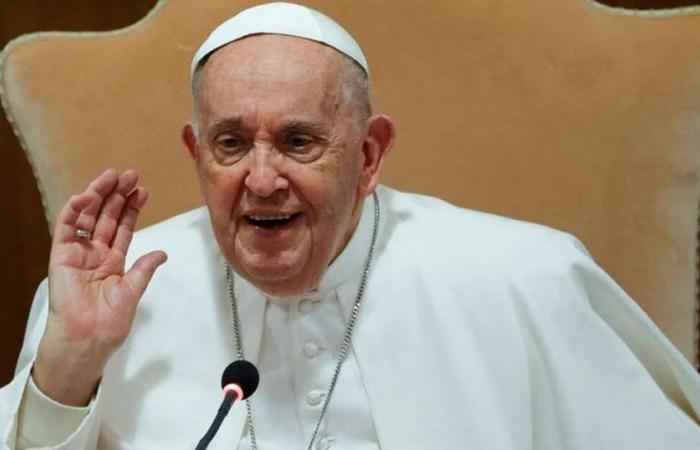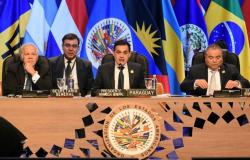
He Pope Francisco encouraged this Saturday to develop the artificial intelligence (AI) in an environment without monopolies and that favors peace in the world against him “technocratic power”, during his speech to the participants of a Catholic forum on this technology.
“The future of the economy, civilization and humanity itself will be played in the field of technological innovation“, he said when receiving attendees at a conference on AI of the ‘Centesimus Annus Pro Pontefice’ Foundation at the Apostolic Palace.”
Francis urged “Don’t miss the opportunity to think and act in a new waywith the mind, the heart and the hands, to direct technological innovation towards a configuration centered on the primacy of human dignity.”
“A technological innovation that promotes development, well-being and peaceful coexistence and protects the most disadvantaged. And that requires a regulatory, economic and financial environment that limits the monopoly power of a few and allows all of humanity to benefit,” she stated.
The Argentine pontiff closely follows the advent of this technology, on which he focused his Peace Message of 2024, and attended last week to speak about it at the summit of the leaders of the G7, the seven most industrialized democracies in the world, gathered in southern Italy (the first time for a pope at this meeting).

In his speech, Bergoglio warned of the risks posed by these algorithms and quoted the scientist Stephen Hawking by emphasizing that its development “could mean the end of the human race” since AI, said the mathematician, “could take off on its own and protect itself better and better while humans, limited by their slow biological evolution, would not be able to compete and would be surpassed”.
For this reason, the Pope raised a “provocation”: “Are we sure we want to continue calling something that is ‘intelligence’? Let’s think about it and ask ourselves if improperly using this very important, very human word is not already giving in to technocratic power,” he questioned.
Because, in his opinion, the “basic question” is whether AI should “serve to satisfy the needs of humanity and improve the well-being and integral development of people” or to “enrich and increase the already high power of a few technological giants”.
Given all this, Francis encouraged “delve into the delicate and strategic issue of decision responsibility when using AI“, questioning philosophy and law, and “find appropriate incentives and efficient regulation” for “stimulate ethical innovation” that “prohibit or limit unwanted effects”.
He noted that “the entire world of education and communication should begin a coordinated process to increase awareness and knowledge” about the use of AI and “its effects on the world of work must be assessed.”
Finally, the Pope called to carefully examine its positive and negative effects in the field of security and privacy, on people’s behavior and to be aware of the “enormous consumption of energy that its development requires, while humanity faces a delicate energy transition,” he said.
(With information from EFE)





